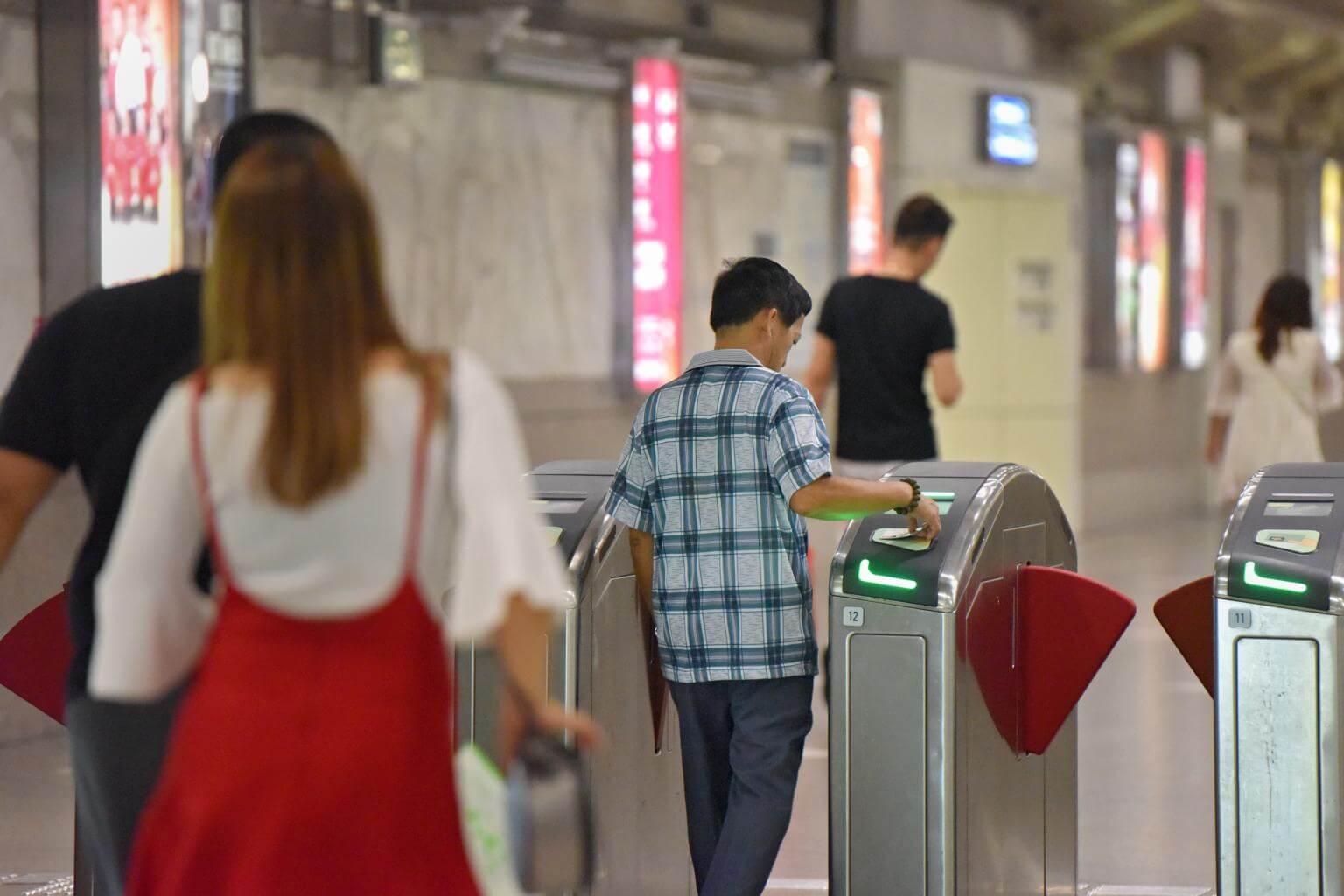Bus and train fares to go up by 6 cents from Dec 29
Card fare hike for students, seniors capped at 1 cent; increase will bring in extra $78.2m
Sign up now: Get ST's newsletters delivered to your inbox

Single-trip train fares and adult cash bus fares - which are paid by around 2 per cent of commuters - will rise by 10 cents.
PHOTO: ST FILE
Bus and train fares will rise by six cents per trip from Dec 29, when the latest annual revision approved by the Public Transport Council (PTC) kicks in.
Announcing the changes yesterday, the PTC said student and senior citizen card fare increases will be capped at one cent, while their cash fares will remain unchanged.
The rise for lower-wage workers and people with disabilities will also be capped at one cent.
Single-trip train fares and adult cash bus fares - which are paid by around 2 per cent of commuters - will rise by 10 cents.
The adjustments will translate to an increase of $78.2 million in fare revenue for public transport operators next year. Out of that, train revenue will rise by $35 million - with SBS Transit seeing a $10.9 million increase and SMRT seeing a $24.1 million hike.
The Land Transport Authority, which administers bus contracts, gets the remaining $43.2 million.
PTC chairman Richard Magnus pointed out that this additional revenue would not be enough to offset the $1 billion annual bus subsidy that the Government expects to pay for the next five years.
Even so, he said the council had sought to "narrow the gap between cost and revenue", while keeping in mind the interest of commuters.
He said fares had fallen by a total of 8.3 per cent between 2015 and last year. And based on feedback it gathered from 10,400 people, the PTC said 70 per cent of commuters found public transport fares to be affordable, and 60 per cent said they were willing to bear a higher fare increase to mitigate the impact on more vulnerable groups.
This year's fare adjustment took into account a new component: Network Capacity Factor (NCF), which calculates the difference between transport supply and commuter demand. This will tend to push fares higher if more transport capacity is created and demand does not catch up. Regular components include changes in core inflation, wages and energy cost.
This round, the NCF - which factored in additional buses pumped into the network last year and the first two stages of the Downtown MRT Line - contributed 3 percentage points to a 7.5 per cent increase the formula allowed. However, a carry-over reduction of 3.2 per cent from last year's adjustment means the latest increase comes up to 4.3 per cent, or six cents per trip for ez-link card users.
With Singapore's rail network doubling by 2030, Mr Magnus was asked if that meant commuters will have to brace themselves for larger fare increases in future. He said much depends on whether growth in demand matches growth in supply, but added: "I don't think there will be a fare reduction next year."
Transport Minister Khaw Boon Wan, in a Facebook post yesterday, said the PTC had a difficult job.
"PTC's decision on fares seldom pleases all," he said. "Commuters do not welcome fare increases; operators need fare adjustments to keep pace with their operating costs. Against such challenges, PTC has chosen the right strategy to be open, transparent and fair."
National University of Singapore transport researcher Lee Der-Horng described the latest increase as "manageable".
"The important thing is we have a workable mechanism for fare adjustments," he said, explaining that PTC's formula "is effective and able to reflect the interests of relevant stakeholders".


